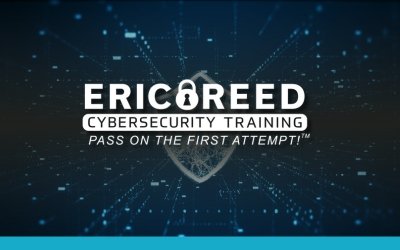Who is Eligible for a Cybersecurity Course?
In the rapidly evolving digital age, the importance of cybersecurity cannot be overstated. As cyber threats become more sophisticated, the demand for skilled cybersecurity professionals continues to soar. This has led many to wonder, “Who is eligible for a cybersecurity course?” The answer is more inclusive than you might expect, reflecting the diverse needs and backgrounds of those interested in fortifying digital defenses. Cybersecurity courses, particularly comprehensive programs like Eric Reed’s Cybersecurity Training, are designed to cater to a wide range of participants.
Aspiring IT Professionals
Individuals looking to kickstart a career in information technology (IT) and cybersecurity are prime candidates for cybersecurity courses. These foundational courses often start with the basics, making them suitable for newcomers to the field. Aspiring IT professionals can gain essential knowledge and skills that serve as a stepping stone to more specialized cybersecurity roles.
Current IT Professionals Seeking Specialization
IT professionals already working in various capacities may seek to specialize in cybersecurity to enhance their career prospects. Cybersecurity courses offer these individuals an opportunity to deepen their expertise, acquire new skills, and potentially transition into dedicated cybersecurity positions within their organizations or elsewhere.
Business and Organization Leaders
Leaders and managers in businesses and organizations need a solid understanding of cybersecurity to make informed decisions about protecting their digital assets. Cybersecurity courses can provide them with a broad overview of cyber threats and defense mechanisms, enabling them to implement effective cybersecurity strategies and foster a culture of security awareness within their organizations.
Non-IT Professionals
Cybersecurity is not just for IT professionals. In today’s digital world, understanding the basics of cybersecurity is becoming increasingly important for individuals across all professions. Courses designed with a broader audience in mind, such as those offered by Eric Reed, can equip non-IT professionals with the knowledge to protect their personal and professional digital information.
Students and Recent Graduates
Students and recent graduates from various fields, including computer science, engineering, and even non-technical disciplines, can benefit from cybersecurity courses. These courses can add valuable skills to their portfolios, making them more competitive in the job market and opening up new career opportunities in the cybersecurity sector.
Hobbyists and Tech Enthusiasts
Individuals with a keen interest in technology and a passion for learning may pursue cybersecurity courses purely out of interest. These enthusiasts can find courses that cater to their level of expertise and curiosity, allowing them to explore the intricacies of cybersecurity in a structured and informative environment.
Transitioning Career Professionals
Professionals considering a career change can find a new and rewarding path in cybersecurity. With courses that range from beginner to advanced levels, transitioning professionals can start with the basics and gradually build up their expertise to enter the cybersecurity field.
Conclusion
The eligibility for cybersecurity courses is broad and inclusive, reflecting the universal importance of cybersecurity knowledge in the digital age. Whether you’re an aspiring IT professional, a business leader, a non-IT professional, a student, a tech enthusiast, or someone looking to change careers, there’s a cybersecurity course out there for you. Programs like Eric Reed’s Cybersecurity Training are designed to meet this diverse demand, offering comprehensive, accessible, and practical cybersecurity education that prepares participants for the challenges and opportunities of the cybersecurity landscape.


